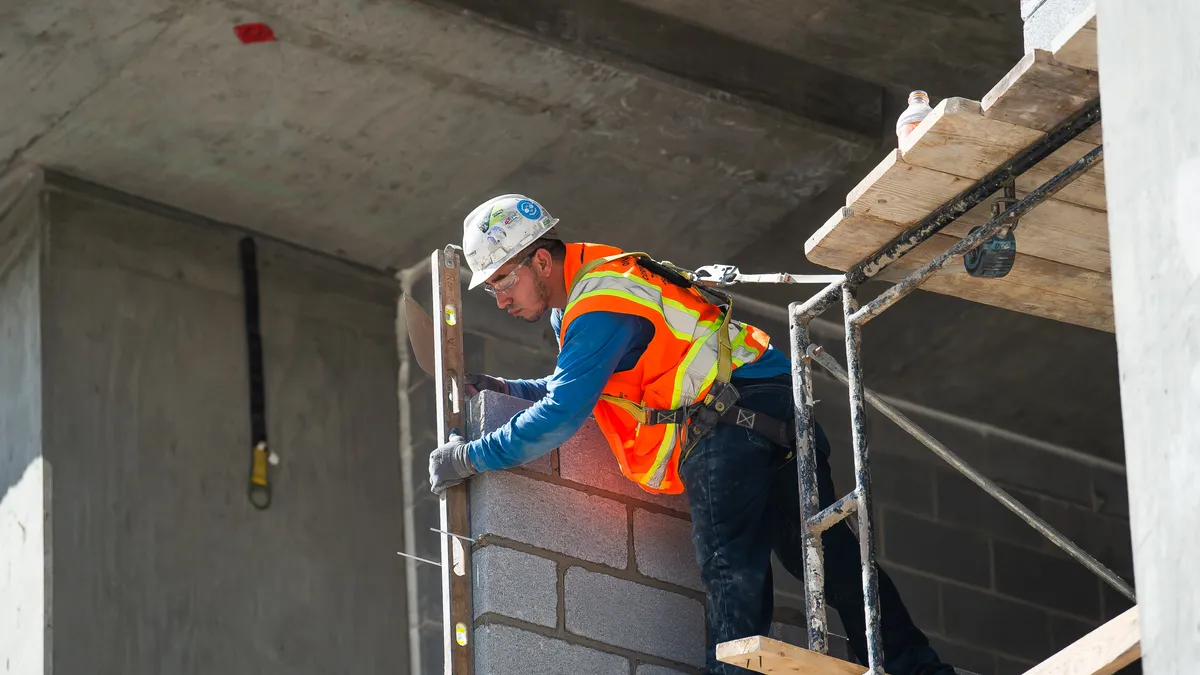Dive Brief:
- KB Home saw building delays last quarter as supply chain shortages plagued the later stages of construction, Chief Operating Officer Robert McGibney said during a Q1 earnings call last week.
- The homebuilding company reported that the availability of transformers and electrical equipment contributed to the slowdown in finalizing homes.
- The COO told investors he expects supply chain disruptions to continue, particularly affecting flooring, heating and cooling materials, and insulation supplies.
Dive Insight:
While supply constrains are not fully resolved, McGibney noted the company has seen some improvements in its inventory availability, such as for appliances.
“At the peak of the supply chain disruption, we had about 400 loaner appliances in place across our system due to back orders or delivery delays, and by the end of the first quarter, we had less than 20,” the COO told analysts.
The number of delivered homes in Q1 was down 3% YoY to 2,788, according to an earnings report. Meanwhile, the company’s ending unit backlog for the quarter totaled just over 7,000, compared to 11,886 the previous year.
KB Home has struggled with persistent supply chain issues in recent years. For example, in Q4 2022, production volumes dropped due to a lack of available electrical infrastructure materials as builders pushed to complete homes by the end of the year, according to a Jan. 4 earnings call.
In addition to electrical components, HVAC equipment and flooring products were also labeled as areas of concern last quarter, McGibney said on the January call. Earlier in 2022 the building company also reported difficulty securing garage doors and insulation, leading to extended building, however those issues have since improved.
KB Home remains “encouraged by the improvements we are seeing in many areas, which we believe will provide greater predictability for our business.” Looking ahead, the company “will focus on delivering our large backlog of sold homes and navigating ongoing, though improving, supply chain constraints,” CFO Jeff Kaminski told analysts on the March call.
Construction companies have faced ongoing challenges over the last few years due to the rapid escalation of material prices, labor issues and supply shortages or delays.
The industry finally began to see some relief late last year, when input prices dipped nearly 3% in December compared to the previous month. Despite the small improvement, overall input prices increased again in January, up almost 5% YoY.














